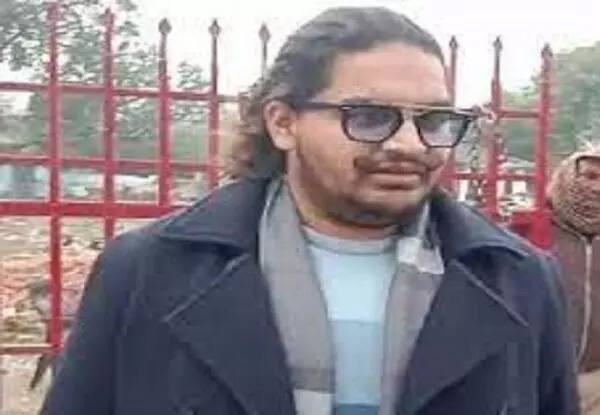The petition demanding the cancellation of the case was rejected, the Supreme Court rejected the demand for cancellation of the case, the case filed in the case of land grab was demanded to be canceled. Supreme Court refuses to hear Mukhtar’s son Umar, had earlier rejected Umar’s petition from Allahabad HC as well. Case of land grab at Jiamau, Lucknow.
Tag: Supreme Court
-

Supreme Court asks Bihar government to produce records related to exemption of Anand Mohan
New Delhi (IANS) | The Supreme Court on Friday directed the Bihar government to produce the original records with regard to the immunity granted to former MP Anand Mohan, who was arrested in 1994 by Golapganj District Magistrate G. In the case of Krishnaya’s murder, he was sentenced to life imprisonment. Justices Suryakant and J.B. Pardiwala’s bench directed the counsel for the Bihar government to produce for perusal of the court the original records relating to the exemption granted to Mohan. The top court has fixed the matter for next hearing in August.
On 8 May, the Supreme Court ordered IAS officer G. The notice was issued on a petition by the widow of Krishnaiah, who was lynched by a mob led by Singh in 1994, against the premature release of Anand Mohan from jail.
The sentence of life imprisonment awarded to a convict as an alternative to death sentence has to be looked at differently and distinguishable from simple life imprisonment awarded as first choice punishment, states the petition filed by Umadevi Krishnaya. should go. An alternative to the death penalty, to be carried out strictly as directed by the court and would be beyond application of remission.
Said, life imprisonment means whole life. Its 14 years cannot be explained. It means imprisonment till the last breath.
Anand Mohan was released from Saharsa Jail after the amendment in Bihar’s jail rules.
The petition states that Mohan is a politically influential person and he himself killed serving IAS officer G Krishnaiah when he was a Member of Parliament. He enjoys political support and has several criminal cases pending against him.
The plea argued that the Bihar Prison Manual, provides that convicts whose death sentence has been commuted to life imprisonment would be eligible for remission only after completion of 20 years of their sentence.
In 1994 Krishnaiah, the then District Magistrate of Gopalganj, who hailed from Telangana, was lynched by a mob when his vehicle tried to overtake the funeral procession of gangster Chhotan Shukla. The mob was instigated by Anand Mohan.
–IANS
-
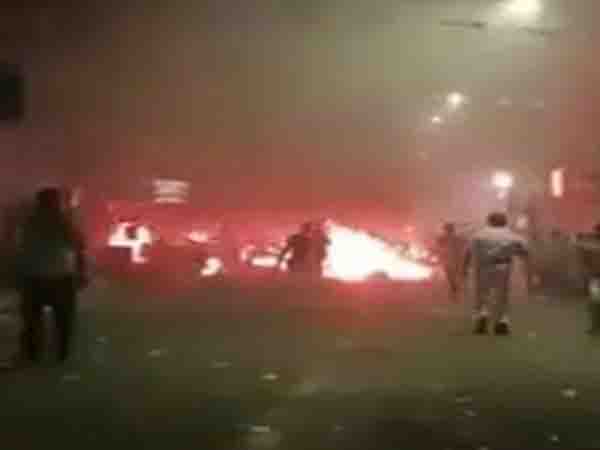
Ram Navami violence: Bengal government challenges Calcutta High Court order in Supreme Court
Kolkata (IANS) | The West Bengal government has approached the Supreme Court challenging the Calcutta High Court order for an NIA probe into the Ram Navami clashes in Howrah and Hooghly districts. The state government said the probe could not be handed over to a central agency as the court’s order was on a petition filed by Leader of Opposition Shubhendu Adhikari with an ulterior political motive.
The matter will be heard on Friday.
On April 27, a division bench of the Calcutta High Court, while ordering an NIA probe into the case, also directed the state police to hand over all documents related to the case to the central agency.
NIA has already registered six FIRs in this case.
The central agency had sent letters to the Additional Director General in-charge of the Criminal Investigation Department (CID) of the West Bengal Police, as well as the commissioners of the Chandranagar Police Commissionerate and Howrah City Police, seeking copies of documents related to the case.
Ordering an NIA probe, the bench had said that it was beyond the power of the state police to find those who were responsible for the violence.
Justice Sivagnanam also questioned the suspension of internet services in the areas.
Internet services cannot be suspended in such clashes, he said. People get stressed due to such incidents.
-
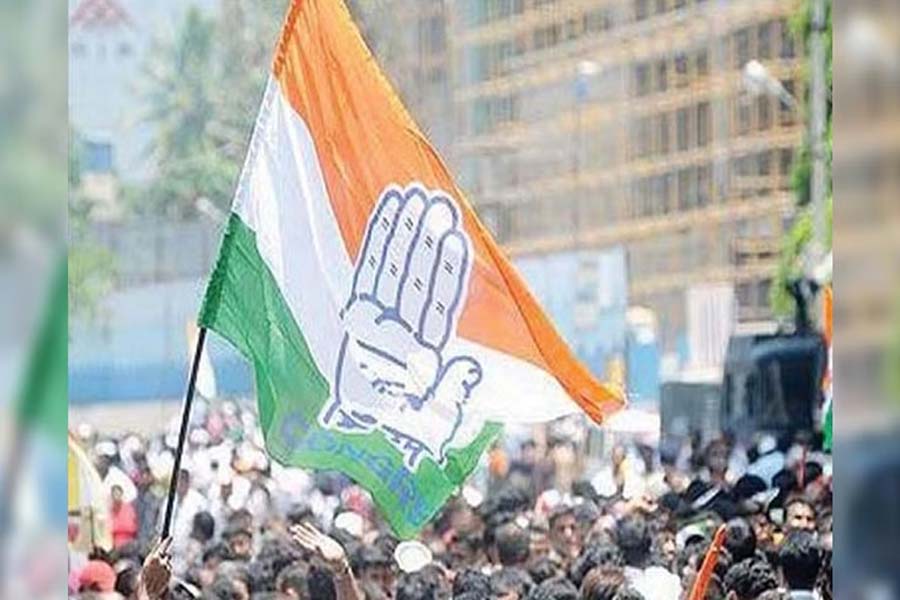
Congress welcomes SC stay on WB govt’s ban on ‘Kerala Story’
KOLKATA: The Congress in West Bengal Thursday welcomed the Supreme Court’s stay on the state government’s order banning the screening of the film ‘The Kerala Story’.
Welcoming the apex court’s verdict, the leader of the party in Lok Sabha, Adhir Ranjan Chowdhury Thursday said he has himself watched the film and found it ”full of exaggerations”.
”The subject it portrays can be handled in better ways than restricting the film,” he said. Besides, a ban on films at the theatres or imposing restrictions on showing it is next to impossible in the modern digital age, Chowdhury, who is also the West Bengal Pradesh Congress Committee president, said. Bengal was the first state to ban the film.
Its plot follows the story a group of women from Kerala who are converted to Islam and join the Islamic State of Iraq and Syria (ISIS). The film is premised on the theory of ‘love jihad’ and claims that thousands of women from Kerala are being converted to Islam and recruited in the terror group Islamic State (IS).The Kerala Story, directed by Sudipto Sen and starring Adah Sharma, was released in cinemas on May 5. The top court passed the order after hearing cross-pleas with the producer of the film challenging the ban on its screening in West Bengal and the decision by theatre owners in Tamil Nadu to not show the movie in the state. Journalist Qurban Ali too challenged the Kerala High Court order refusing to stay the release of the film.
”The Supreme Court’s verdict is supreme … We could have fought it (the film) in other ways by understanding the intention behind it,” Chowdhury told PTI. Staying the Bengal government’s order on the film on Thursday, the apex court said it is the duty of the state government to maintain law and order as the film has been granted certification by the Central Board of Film Certification (CBFC).
“Bad films bomb at the box office … The legal provision cannot be used to put a premium on public intolerance. Otherwise, all films will find themselves in this spot,” it said. Chowdhury said, ”I have seen the movie and found a lot of exaggeration in it.
But that does not mean that I will put a ban on it. I will have to be prudent and pragmatic in dealing with it”. Hitting out at the BJP, he said ‘The Kerala Story’ was made tax-free in Madhya Pradesh and Uttar Pradesh as the saffron party in power in the two states are keen to divide the society.
”They (the two states) never made films on revolutionary personalities of India tax free. It shows that they are hell bent on dividing the society,” he added.
-
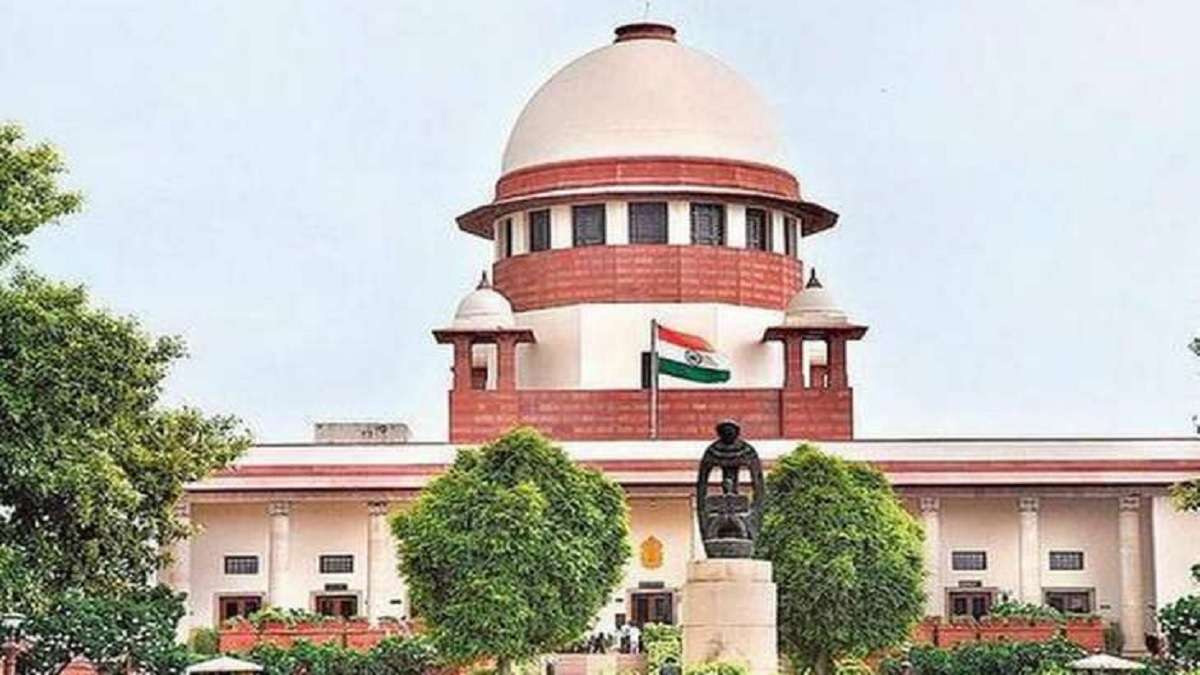
SC stays Bengal government order banning MOVIE ‘The Kerala Story’
The Supreme Court today stayed the West Bengal government’s order banning the public screening of movie ‘The Kerala Story’. The court said the May 8 order suffers from “overbreadth” and is not based on any material produced before Court.
It said that statutory provisions cannot be used to “put a premium on public intolerance” and hinted that it may stay the West Bengal government’s order banning the movie, “The Kerala Story”.
A bench headed by Chief Justice D Y Chandrachud said it is the duty of the state government to maintain law and order as the film has been granted certification by the Central Board of Film Certification (CBFC).
“Bad films bomb at the box office,” the bench said.
“The legal provision cannot be used to put a premium on public intolerance. Otherwise, all films will find themselves in this spot,” the bench, also comprising justices P S Narasimha and J B Pardiwala, said during the hearing which is still on.
The states cannot sit in appeal over the grant of certification to the movie, said senior advocate Harish Salve appearing for the producer of the movie.
Meanwhile one of the petitioner in the case Qurban Ali said that his stand vindicated as it heared SLP
“We are thankful to the honourable Supreme Court for hearing our SLP.Now the honourable court will watch this movie (Kerala stories) regarding the challenge to the Central Board of Film Certification (CBFC) certification, the Court said it would be listed after summer vacations as the Court would first have to see the movie for that” said Ali
“The challenge to the final judgment of the Madras High Court challenging the CBFC certification we will list after vacations. We will have to see the film for that. We will do that,” the bench said.
Qurban Ali said that our demand for a disclaimer was also accepted by the honourable court.
During the hearing, the bench also questioned the claim made by the film that 32,000 women from Kerala have been deceitfully converted into Islam. Senior Advocate Harish Salve, appearing for the film producer, agreed to clarify in the disclaimer that “there is no authentic data available to back up the suggestion that the figure of conversions is 32000 or any other established figure”. He said that the disclaimer will be added by 5 PM on 5 PM on May 20. The disclaimer will clarify that the film represents a fictionalised version of subject matter.Bench questions 32,000 figure At this juncture, CJI Chandrachud asked Salve about the 32,000 figure and said it is a “distorted figure”. “Mr Salve, said that it will be clarified in the film disclaimer that there is no authentic figure available.
Further, CJI Chandrachud told senior advocate Harish Salve, appearing for the producer of the movie, that there needs to be proper disclaimer in the film.
“The disclaimer should say that there is no authentic data to back up the suggestion that the figure of conversions is 32000 or any other established figure,” Salve said, as reported by Live Law.
To this, the CJI responded, “Disclaimer should say that it’s fictionalised.”
-
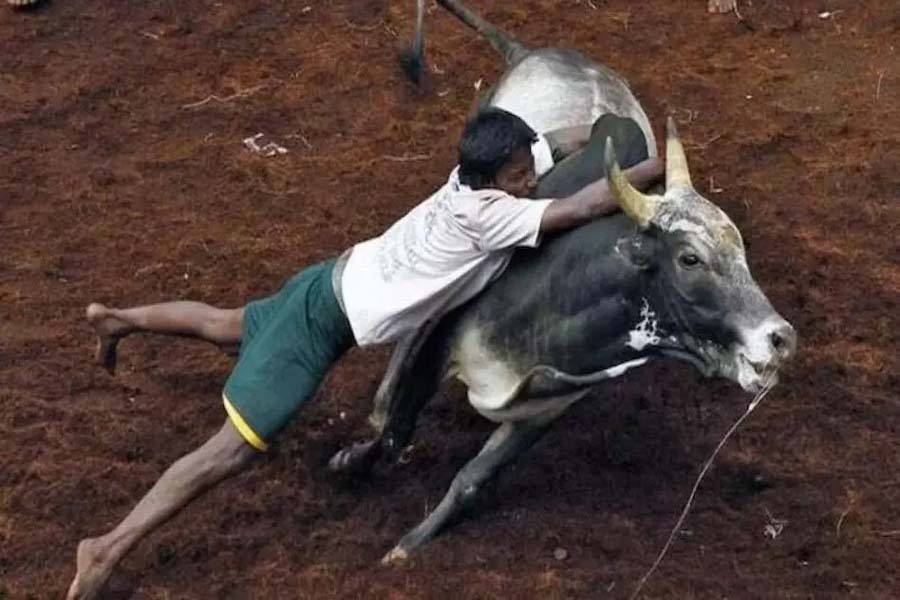
Supreme Court allows Jallikattu in Tamil Nadu
New Delhi (IANS) | The Supreme Court on Thursday allowed Tamil Nadu’s ‘Jallikattu’ law. Similar laws made by Maharashtra and Karnataka governments have also been allowed by the apex court. Justice K.M. A five-judge constitution bench headed by Joseph said it would uphold the view of the legislature. The legislature has taken the view that it is part of the cultural heritage of the state. The apex court said that when the legislature has said that Jallikattu is the cultural heritage of Tamil Nadu, the judiciary cannot take a different view. The Court emphasized that the legislature is best suited to decide this.
The bench said the court is satisfied from the materials that Jallikattu has been practiced in Tamil Nadu for many years and is considered as an integral part of Tamil culture. It does not come under the purview of the judiciary.
The apex court had in December last year reserved its order on the petitions challenging the laws of Tamil Nadu and Maharashtra allowing bull-taming sport ‘Jallikattu’ and bullock cart racing.
In a written reply, the Tamil Nadu government had said that Jallikattu is not just entertainment but has great historical and cultural heritage.
In May 2014 Animal Welfare Board of India Vs. In the Nagaraja case, a two-judge bench of the apex court had banned the use of bulls for Jallikattu in Tamil Nadu and bullock cart races across the country. Tamil Nadu amended the central law, The Prevention of Cruelty to Animals Act, 1960, to allow Jallikattu. -
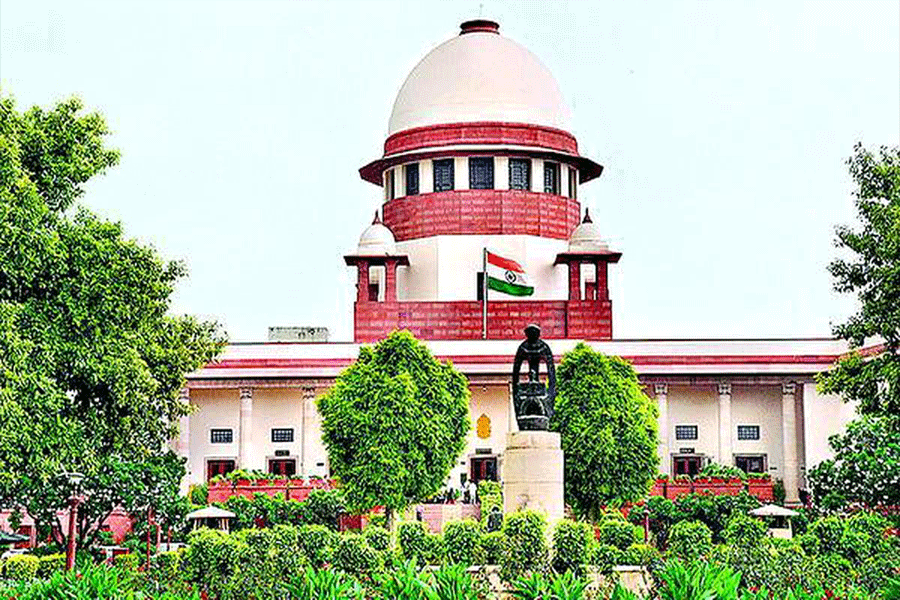
Supreme Court refuses to stay HC’s order on R5 Zone of Amaravati
NEW DELHI: While paving the way for the Andhra Pradesh government to allot house sites to the Economically Weaker Sections (EWS) in R5 Zone of the Amaravati capital region, the Supreme Court on Wednesday said land pattas would be subject to the outcome of writs pending in the High Court. A bench headed by Justice KM Joseph said persons to whom patta would be granted under the EWS scheme, which is subject matter to the writ, would not be entitled to plead any special equity in case the verdict goes against them.
“After hearing the parties, we are of the view that we have to modify the impugned order and direct that pattas issued to the EWS housing sector will be subject to the orders and decisions to be rendered in the writ petitions which have been filed. Accordingly, we direct the Capital Region Development Authority (CRDA), while issuing pattas, shall make it clear that it would be subject to the pleas pending in the HC. We also make it clear that persons to whom patta is granted under EWS scheme and which is the subject matter of writ will not be entitled to plead any special equities in case the verdict goes against them,” the bench said.
The plea was filed against the high court’s May 5 order in which it had declined to pass interim orders for staying the March 21 notification and GO dated March 31, 2023. The AP government by way of the March 21 notification had modified the masterplan for the Amaravati capital city, according to which certain land was allocated towards providing housing to the poor. Consequently, vide the impugned GO, certain lands which form a part of the land pooled from various farmers for the development of the Amaravati Capital City in 2015, have been allotted for the development of EWS house sites.
The plea had alleged that the impugned GO, which allowed for amendment of the original masterplan, was in violation of the judgment of the full bench of the High Court in the Amaravati capital matter dated March 3, 2022.
It was also contended in the plea that the impugned GO gave away a piece of land in the capital territory for EWS housing, while it was meant for the creation of an Electronic City as per the Notified Master Plan issued in 2016 and as contemplated under the Development Agreement/LPS (land pooling scheme) between the Amaravati farmers and the State.
On the other hand, Senior Advocate AM Singhvi for the State contended that the matter did not violate the capital judgment. He also argued that the land was sought to be allocated to EWS in accordance with Section 53(1)(d) of the APCRDA Act.
-
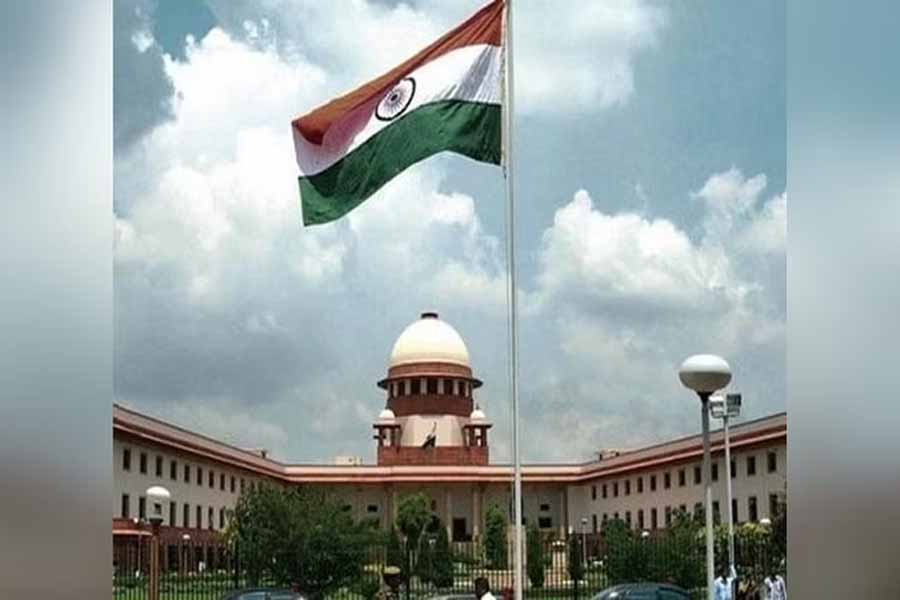
SC pulls up Sukesh over plea seeking extension of time to meet lawyers
NEW DELHI: The Supreme Court on Tuesday rapped alleged conman Sukesh Chandrasekhar for filing a plea seeking an extension of time to meet and consult his lawyers in the Mandoli jail here.
A bench of Justices Ajay Rastogi and Bela M Trivedi said visitation is already being provided to Chandrasekhar as per prison rules.
”You give the name of the lawyers, we will ask the jail authorities to allow your lawyers to stay in the jail. What kind of statement you are making in this court? Do you want a privilege in jail? the bench remarked.
The counsel appearing for Chandrasekhar submitted that 28 cases are pending against his client in six cities and more than 10 lawyers have been engaged.
According to jail rules, only 30 minutes twice a week is being given to meet lawyers, which is not sufficient, his lawyer said, adding his client’s right is being contravened.
The apex court then said in its order, ”It is not is dispute that visitation is provided to the petitioner in compliance of jail rules. What is being prayed for is extraordinary relief which is not permissible.” A prisoner is allowed two interviews (meetings) every week with his relations or friends for half-an-hour duration, according to jail rules.
Chandrasekhar and his wife are lodged in jail on charges of alleged money laundering and duping several people.
-

LG should work on the help and advice of the government: Supreme Court
New Delhi: The Supreme Court Friday observed the lieutenant governor has to act on the “aid and advice” of the council of ministers of the Delhi government in nominating 10 aldermen to the MCD, a day after it substantially clipped the wings of the Centre’s point man in running day-to-day administration of the national capital. The top court, which was hearing a petition filed by the AAP government challenging the nominations to the Municipal Corporation of Delhi (MCD), meanwhile, permitted the counsel for the office of the lieutenant governor to withdraw the earlier reply in the wake of the SC’s judgement holding that the LG has to act as per the aid and advice of the council of ministers.
A five-judge Constitution bench on Thursday held that the Delhi government has legislative and executive powers over all but three services – public order, police and land. “Why don’t you (Additional Solicitor General Sanjay Jain, appearing for the office of the LG) advise the LG that he cannot nominate members in the MCD. He has to act as per the aid and advice of the government,” the CJI said. The bench fixed the Delhi government’s plea for hearing on May 16 and permitted the LG’s office to file a fresh response to the petition.
Earlier, the top court had said it will hear on May 8 the plea of the Delhi government challenging the power of the lieutenant governor to nominate members to the MCD. In the petition filed through lawyer Shadan Farasat, the Arvind Kejriwal government has challenged the decision of the LG to nominate the members allegedly without the “aid and advice” of the council of ministers. Besides seeking quashing of the nominations, the plea has sought a direction to the LG’s office to nominate members to the MCD under Section 3(3)(b)(i) of the Delhi Municipal Corporation Act…, “in accordance with the aid and advice of the Council of Ministers”.
“This petition has been filed by the elected government of the NCT of Delhi seeking inter alia quashing of orders dated…, and consequent gazette notifications …, whereby the Lieutenant Governor has illegally appointed 10 (ten) nominated members to the MCD on his own initiative, and not on the aid and advice of the Council of Ministers,” the plea said. It said neither the DMC (Delhi Municipal Commission) Act nor any other provision of law says anywhere that such nomination is to be made by the administrator in his discretion. “This is the first time such a nomination has been made by the LG completely bypassing the elected government, thereby arrogating to an un-elected office a power that belongs to the duly elected government,” it said. Referring to the constitutional scheme pertaining to Delhi, it said the word ‘administrator’ must necessarily be read as the administrator, who is LG here, acting on the aid and advice of the council of ministers. The petition underlined that according to the provisions of the Delhi Municipal Corporation Act, apart from the elected councillors, the MCD also had to include 10 people, above 25 years of age, having special knowledge or experience in municipal administration, which were to be nominated by the administrator.
-
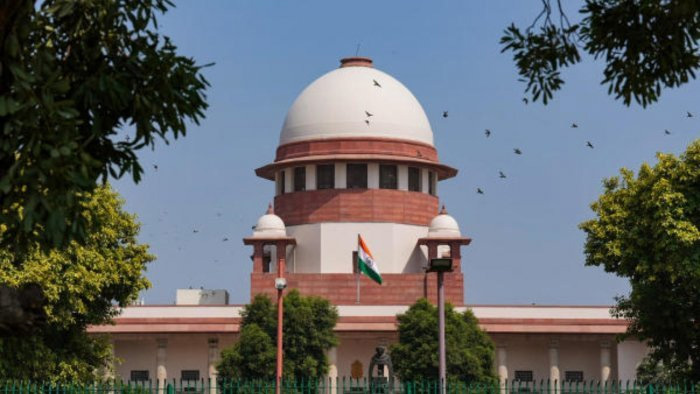
SC willing to grant 3 more months to SEBI for probing Adani-Hindenburg issue
The Supreme Court on Friday asked the Securities and Exchange Board of India to show some “alacrity” in completing its probe within three months into the controversy surrounding the Hindenburg Research report on the Adani Group of companies.
The court said it may grant additional time of three months instead of six months for the purpose.
The group was accused of “accounting fraud” and “brazen stock manipulation” as per January 25 report by the US short seller firm Hindenburg.
Taking up the SEBI’s plea, a bench of Chief Justice of India D Y Chandrachud and Justices P S Narasimha and J B Pardiwala showed its disinclination to accept a contention by Solicitor General Tushar Mehta that the plea for six more months was a compressed time, looking into very scope and expanse of the probe.
“You complete your investigation in three months and come back to us, because there has to be some alacrity. We cannot say that you need a minimum six months,” the bench told Mehta, representing SEBI.
The court scheduled the matter for Monday for passing the order on SEBI’s application for more time.
The bench also said it has received report of the Justice Abhay Manohar Sapre committee appointed by it.
The court said the report filed in sealed cover would also be dealt with on Monday as the bench could not read it due to paucity of time.
During the hearing, the bench indicated to Mehta it will give SEBI further time of three months’ only and fix the matter for consideration on August 14.
Advocate Prashant Bhushan, appearing for the petitioners, opposed the SEBI’s plea for six months additional time.
He said that they should have disclosed to the court the information on the investigation conducted so far.
“What investigations have been done so far on this matter, because the Hindenburg was not making these allegations for the first time,” he said.
The bench, however, did not agree.
“Suppose they were to tell us what they have learnt so far in the investigation then to ask them to disclose this would be affect their probe. It is not a criminal investigation that we are looking at the case diary. It would not be proper at this stage,” the bench said.
Mehta, for his part, insisted, “I have taken instruction from the highest administrative level. Six months are also a compressed period and I am saying it with a degree of sincerity. I will not be promising something, which we also know is something not achievable”.
On April 29, the SEBI moved the court seeking six-months extension to complete its probe into Hindenburg allegations of “stock manipulation” by the Adani group.
In its application, the market regulator said, “For ascertaining possible violations related to mis-representation of financials, circumvention of Regulations and/or fraudulent nature of transactions in respect of 12 suspicious transactions…..given the complexity of the matter, SEBI in the normal course would take at least 15 months for completion of the investigation of these transactions, but is making all reasonable endeavours to conclude the same within six months”.
It submitted that in order to conduct a proper investigation and arrive at verified findings, it would be just, expedient and in the interest of justice that the apex court extends time to conclude the investigations by at least 6 months.
In an order passed on March 2, the top court had set a deadline to submit a status report on May 2, while asking Sebi to expeditiously conclude the investigation and file a status report.
The court had set up the committee headed by the top court’s retired judge Justice Sapre to investigate if there has been regulatory failure in dealing with the alleged contravention of laws pertaining to the securities market in relation to the Adani Group or other companies.
It had directed the SEBI to look into whether there has been a failure to disclose transactions with related parties and other relevant information and whether there was any manipulation of stock prices in contravention of existing laws.
